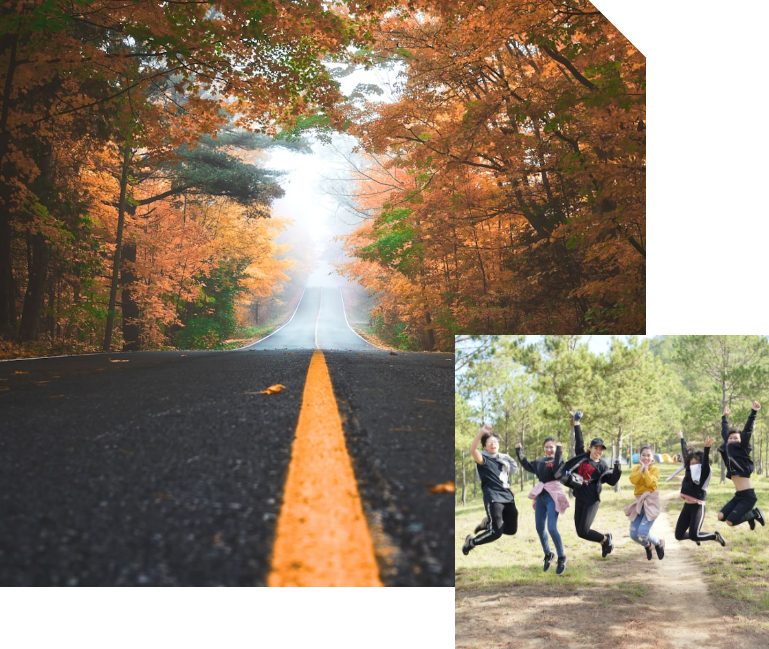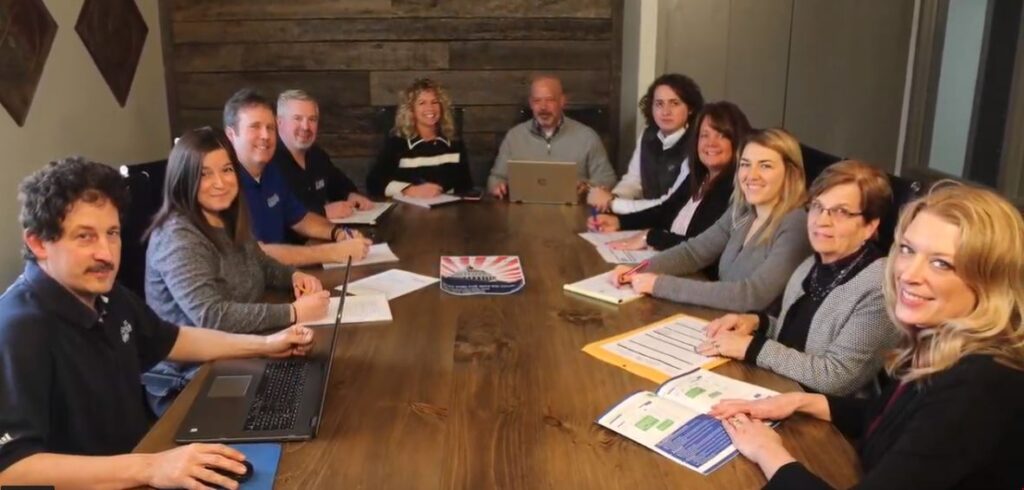
Parents & Students
An Experience You’ll Remember


Journey Into Learning
Enriching Education Beyond the Classroom
Embark on a journey of educational discovery with our dedicated platform designed to enrich teaching experiences. Here, educators find a gateway to unlock transformative learning adventures for their students. From essential trip details to financial support and innovative technology resources, we’re here to empower teachers in shaping unforgettable educational journeys. Get ready to explore, learn, and inspire!
OUR TECHNOLOGY
Empowerment at Your Fingertips
Equip your students with the tools they need to thrive with our innovative mobile app. Designed to enhance safety and convenience, our app serves as a trusted companion, providing essential information and seamless communication throughout the journey.

Parents & Students Travel Essentials
- General Information
- Financial Information
- Safety & Security
- Frequently Asked Questions
- What to Pack
- Itinerary
How do I download the Student Adventures app?
The Student Adventures app can be download from the App Store or Google Play. To download:
- Open the App Store (iPhone) or Google Play store (Android)
- Search “Student Adventures Trip App”
- Download and open the app. If you’ve already received login information, you may login. Otherwise, it will be sent to you as you get closer to your trip departure
You may also scan the QR code below from your phone to download the app.

How do I register for the trip?
Download the Student Adventures App and click on “Not enrolled? Sign up now”. You can register and pay through the App. You can also go to www.studentadventures.org and register and pay on the website.
How do I contact Student Adventures?
You can call them at 877-873-7550 or go to www.studentadventures.org.
Where do I send payments?
You can pay through the app or online at www.studentadventures.org. Payments for the trip are not allowed to be made at the school.
What should be packed in the bag for the trip?
- To provide space for everyone’s luggage, limit yourself to ONE suitcase and ONE small carry-on bag.
- A luggage tag must be attached to the outside of your suitcases.
- Extra Faskmasks, hand sanitizer, and thermometer
- Rainwear (a raincoat or jacket is often necessary for keeping warm at night or on the bus)
- Personal items (shampoo, deodorant, toothbrush, toothpaste, comb, brush, hair dryer).
- Plan on one outfit per day of the trip, it’s important to dress in layers.
- VERY COMFORTABLE walking shoes for touring. No flip-flops or shower shoes outside of the hotel. Sandals that are secure to the foot are fine.
A suggested checklist for other items to pack (perhaps in your carry-on bag):
- Camera: Everyone’s camera looks the same, so put your name on yours.
- Chargers for phones / cameras / etc.
- Headphones will be permitted on the bus ride to and from DC. They will not be permitted on the bus while we are touring.
What is the policy on cell phones, iPods, iPads, etc?
This is at your group leader’s discretion.
How much cash does a student need on the trip?
There is no set amount that is actually needed. Many meals are covered by your trip cost. Please check with your school’s tour leader for more information.
Are students allowed to bring snacks and drinks?
Yes, students are allowed to pack snacks and drinks to have on the bus and/or in the hotel room. If the student is on the “Nut-Free” bus, then it is the students’ job to pack snacks that are 100% free of ALL nuts.
What will meals be like?
Although meals differ from trip to trip, Student Adventures aims to provide a variety of options. Breakfasts are typically buffets with both hot and cold items. Lunch is usually a food court variety and dinner is either a sit-down buffet style or cafeteria style.
My child has dietary restrictions and/or allergies. Can they still participate?
Yes. There is a section in the online registration process that will ask if your child has dietary restrictions or allergies that Student Adventures should be aware of. We then pass that information along to restaurants on the tour to assist with meal safety.
Can my child carry their own inhaler or Tylenol?
This is at your school/administration’s discretion.
What if my child gets sick while on tour?
In case of serious medical situation, our first response will always be to call 911. If your child is too sick to travel that day, but not sick enough to require medical attention, it is up to the group leader to have a chaperone stay with the child in the hotel for the day.
What happens if my child gets left behind or lost while touring D.C.?
They are given a lanyard with an emergency number to call. Student Adventures will then get a hold of the sponsor.
If there is a discipline issue on the trip involving my child, how will that be handled?
ALL discipline issues will be handled by the teacher chaperones on your child’s bus. Any discipline will be handled on a case-by-case basis with student safety being the number one priority and school conduct in mind. Depending on the issue, parents could be called at any hour of the day and if severe enough, students will be sent home and dismissed from the trip immediately.
How do I know my child is safe on this tour?
Safety is a top priority on every Student Adventures tour. Please read through our safety and security page for more details.
Will there be security at the hotel?
Yes, Student Adventures hires security guards to monitor the hallways each night at the hotel. Students go to their rooms after returning from touring. They have a night check by teacher group leaders and no one is allowed out of rooms after the check. Security personnel monitor and walk our hotel hallways all night.
Expensive items are your responsibility. The chaperones and/or teachers will not be responsible for lost items, jewelry, or money. Do not leave valuables unattended on the bus on in the hotel.
What airlines does Student Adventures use?
We are a national wholesaler for United, American, Southwest, and US Airways. Regularly scheduled flights are used for travel.
What kind of ID does my child need to get on the plane?
Only adults (over the age of 17) need an ID to get on the plane. If your child is under 17, we advise them to bring no ID at all to avoid confusion with nicknames on school IDs.
What are my responsibilities on this trip?
Everyone wants this trip to be fun! All it takes is cooperation and consideration. Please remember, this is a school function, so all school rules apply. Students must do what they are told at all times. All of the rules have been established to ensure the safety and well being of every student. That is our main concern. Our other concern is for the people around us. We want to be proud of our students who are taking part in this activity. We want to ensure that our students do not interfere with any other person’s enjoyment of our nation’s capital.
What are my responsibilities on the bus?
You must always ride the bus to which you have been assigned and in your assigned seat. Stay in your seat at all times. No flash or bright lights while is it dusk / dark outside. This is a distraction to the bus driver. We stop every few hours or so for restroom and lunch/dinner breaks. On the trip to and from DC, you may listen to your music with earphones or talk–as long as you are not disturbing anyone. While touring in Washington, you will not be allowed to listen to your music because you will need to listen to the chaperones and the tour guides. They give important information from place to place. Remain seated each time the bus stops until you receive directions from your chaperone. Each time you get back on the bus, be sure your chaperone knows that you are there.
What are hotel guidelines?
You are only allowed to be in your room area and in the breakfast area in the morning; other parts of the hotel are off limits. Any other needs should be brought to the attention of your chaperone or the trip sponsor. Chaperones will make room checks. Security guards will be posted in each hall in the event an emergency arises. You must stay in your room; it is a good idea to keep the dead-bolt lock on at all times. Remember that there are other guests in the hotel, so act accordingly. Music, TV, and talking must not be too loud. You are responsible for waking up on time. Your chaperone and/or hotel may give a wake-up call.
What should we know when touring?
Be polite and considerate of others. Listen to the tour guides or any other people giving you information or instructions. Always know WHERE you are supposed to be and WHEN you are supposed to be there. Use the “buddy system.” Do not wander off alone. Always stay with the group. Stopping to buy food or souvenirs on your own may separate you from the others. Be patient. Sometimes you will just have to “hurry up and wait.” Students should follow their chaperone’s instructions regarding the appropriate times and places to purchase souvenirs. Under no circumstances are students allowed to make purchases from anyone other than licensed street vendors, stores, or gift shops.
How can two parents pay separately?
One parent should set up the account for your child’s registration. Student Adventures has an “other parent payment option” that can be utilized after registration.
When will my fundraising money be applied to my account?
Your tour sponsor is responsible for passing along any details regarding fundraising and information on how to apply the credit to your account.
Can I lower my trip costs by using my hotel points and/or air mileage?
No. All of our tours are sold as packages with already discounted rates.
What happens if my payments are late?
Late fees will be added to your account if payment is not made after a three-day grace period. If you are unable to pay trip fees due to extenuating circumstances, please contact your group leader or call our office at 877-873-7550.
Will Student Adventures contact families that owe money past the due date?
Yes. We will contact families unless your or your sponsor has contacted us about special situation.
What is included in the tour costs?
Transportation, accommodations, attractions, activities, and meals (as specified in your itinerary), as well as access to 24-hour emergency services. For domestic tours, our Standard Cancellation Policy is included in the trip cost.
What is not included in the tour costs?
Airline baggage fees and Cancellation Super Protector are not included in tour costs.
Given the rising price of fuel, it is important to know a fuel surcharge could be assessed if the price of oil continues to increase.
What is CSP?
Cancellation Super Protector (CSP) is our new policy that entitles parents to a 100% refund of the trip price, less the cost of the CSP and any non-refundable fees (bank NSF Fees, Late Payment fees, phoned in payments, fees for Auto-Pay declined credit card or electronic checks, and Trip Add-ons (shirts, photos, sweatshirts),. All cancellations must be in writing and made PRIOR to trip departure, submit the cancellation by emailing [email protected]. This protection excludes non-refundable airfare, theater tickets, dinner cruises, or dinner theaters if purchased on your behalf.
If I purchase CSP, how and when will I receive my refund?
You will receive your refund within six weeks of your cancellation. Refunds will be issues in the same manner in which payments were received.
Will we get a copy of the final itinerary before the trip departs?
Yes. A copy of the itinerary is on your Student Adventures Trip App, along with supporting links that help detail your trip.
What type of motor coach will be used for the trip?
Every motor coach we use is a newer model with a wide body, DVD players, air conditioning, and restrooms. All of the motor coach companies undergo extensive audits.
What type of hotels are used for the Student Groups?
The hotels are evaluated based on a checklist of safety features and amenities. We typically use hotels that include Hyatt, Hilton, Hampton Inn, Sheraton, and various Disney hotels.
What is the difference between a double and a quad room?
Quad rooming, which is the typical option for students, is where four students are in a room with two beds. Students only room with same-gender peers. Double rooming, which is the typical option for chaperone/adults, is where two adults are in a room with two beds. Adults only room with same-gender peers.
What number is my child on the waitlist?
Each school handles their waitlist differently. Please check with your group leader to find out more details.
What happens if my child is taken off the waitlist and placed on the active roster?
Once a space opens and your child is added to the active roster, you will be notified. If your child is able to attend, you will then go to the website and make a payment to bring your child’s account up-to-date.
Are your tour directors screened?
Yes, all Student Adventures Tour Directors and screened and employed by Student Adventures.
What to Take on the Plane
Students and adults have very different ideas of what to take on the plane. Items teens deem necessary to survival are probably not. Think in terms of basics:
- Photo ID / Passport
- Face covering (no longer required but always a good idea)
- Sweatshirt or sweater
- Snacks for the plane (check with your group leader)
- Backpack with a change of clothes in the event a bag is lost
- Carry-on liquids, aerosols, creams, and gels using the 3-1-1 rule (3.4 oz bottle or less; 1 quart-sized, clear, plastic, zip-top bag; 1 bag per passenger)
- Headphones for electronic devices like cell phones and iPads (all set to airplane mode, of course!)
Flying – Packing Dos and Don’ts
There’s a LONG list of banned items for carry-on and/or checked bags by the Transportation Security Administration (TSA). Students may not realize items are prohibited and toss them in a purse or backpack, causing delays or even fines. Some items include:
- Nail clippers with files
- Pocket knife
- Pepper spray
- Electronic lighters, plasma lighters, arc lighters
- Insect repellent
Surveying Security inside the Airport terminal
Everyone dreads the security line, but it’s necessary for the safety of all air travelers. Herding a group of students through the long and winding lines can be difficult, but a little advance prep can make it easier:
Plan to remove your shoes. Unless you are over the age of 75 or under the age of 13, you will probably be asked to take them off.
Eliminate the heavy metal. Skip the big belt buckles, heavy metallic jewelry, and keys, or be prepared to remove them all at security for screening. If you have body piercings, remove them or plan on a pat down.
Remove your laptop before passing through security. In some cases, you may be asked to remove all electronics from your bag to be scanned individually.
Tips for Success when flying with students for the first time
Quick Tips for First-Time Flyers
- Do not lock luggage for easier TSA accessibility.
- Discreetly label bags with identifying information
- Make sure any checked bags are less than 50 LBS
- Limit carry-on items to one bag and one personal item (handbag, backpack, briefcase, laptop computer, with or without bag)
- NEVER leave luggage unattended
- NEVER joke about bombs, firearms, or terrorism while traveling. There is no quicker way to gain unwanted attention from the TSA! All comments are considered real threats.
Before you begin to pack for your trip, remember you are allowed one suitcase and one carry-on bag. Each participant will be required to handle their own luggage. Student Adventures recommends using a lightweight suitcase with wheels. Carry-on bags must be small enough to fit under a seat or in the overhead bin of the motor coach (duffle bags or backpacks are perfect).
Know the weather for your destination! You will want to pack accordingly.
Your carry-on bag will remain with you at all times and should contain your valuables, a few essentials and, to be safe, a change of clothes for the next day. Here are a few suggestions for your carry-on
- Change of clothing (you will not have access to your main luggage until the following day on all overnight travel trips)
- Spending Money/Debit Card
Basic toiletries: deodorant, toothbrush, toothpaste, hand sanitizer, menstrual products, etc.
- Medications
- Cell Phone/iPod with chargers
- Glasses/Contact Lenses
- Reading Materials
- School ID
- Your suitcase should contain your wardrobe for as many days as you will be traveling. Keep in mind that weather will play a factor so pack accordingly. Definitely take the following:
- A good pair of walking shoes and a pair of flip-flops for the hotel. A pair of dress shoes if necessary.
- Underwear – take one pair more than you think you need, just in case!
- Jeans/Khakis (or shorts if permitted)
- T-shirts, collared shirts
- Sweater, sweatshirt, windbreaker
Your Itinerary will be given to you by your Teacher/Trip Sponsor and can be found on Your Trip App. Be prepared for a fun adventure! You will be on the go most of the time so be sure you are well rested and dressed accordingly.
- Making Payments
- Cancellations & Refunds
- Trip Cancellation Protector
- Fundraising
The EasyTrack online tour management system is developed exclusively for Student Adventures. It is an online student registration, payment, and communication portal.
You can check the Easy Track Bulletin Board for important dates, fundraisers, parent meetings, payment information, itineraries, behavioral contracts, iChat forms, and more.
Click Here to register or log-in to your account with Easy Track. If you have traveled with Student Adventures before, you can Log in to your Easy Track account by inputting your User Name and Password.
Cancellations: All cancellations must be in writing by or on behalf of the participant registered for the trip. You can email [email protected] or via mail to 2430 E. Hill Rd. Grand Blanc, MI 48439 Suite A
Refunds: Student Adventures will refund monies directly to the Trip Participant in the event that they are eligible for a refund as outlined in the cancellation sections above. All refunds are only issued to the primary contact and issued using the original form of payment on the account. Refunds will be issued within 30 days upon receiving the request.
For information about our cancellation policy, view our policy here.
A simple way to offset the cost of the trip is to do a little fundraising and the easiest way to do that is to request donations from family and friends. Many times a family member or friend may want to give a gift to your child and it’s hard determining what to get a teenager. Making a donation to your child’s trip is perfect! They will be giving memories that last a lifetime. Here is the best way to request a donation from family and friends:
Create an account with Easy Track and click Request Donations from Family/Friends. This allows for three ways to receive funds: Email, Mail and Facebook. Let’s go through each process so you know what yo’re doing when you get there.
- Click on the “View Email” button. Review and choose the template you like (Travel Gift, Birthday Travel Gift, etc).
- Click the “Setup Email” button. This will allow you to create an email with all the pertinent information in it and send it to your friends and family members. This email will contain a secure payment link that will allow them to make a donation directly to your student’s account with either a credit card or online check. For optimum security, please note that no credit card/banking information is saved on this system.
MAIL A PERSONAL REQUEST
- We have prepared a standardized request letter in Word. Download the template and make changes to the highlighted areas (student’s name, school, etc).
- Proofread your document once you’ve finished making sure you’ve completed the template completely and accurately.
- Print the letter and mail to friends or family.
- Click on the F SHARE icon to post a link on Facebook allowing you to ask your Facebook friends to donate to your student’s trip.
- Before you post, it is recommended you write a personal note describing your child’s trip and thanking them in advance for any donation.
- Safe Travel Team
- Trip Hygiene

Safe Travel Team
Our Safe Travel Team brings together decades of student travel experience to collaborate and create new safety protocols associated with COVID-19. Our team will assess the safety of each destination, monitor all safety protocols with each vendor, create training and safety plans that will adhere to the CDC and WHO, and local health department guidelines, and closely monitor the evolving guidelines associated with the travel. We will continually update and modify our safety protocols with the latest information.
By your side, 24/7
Each student is given a lanyard to wear during the tour. This tag has a 24-hour emergency number (877-873-8419) on it and is answered 24 hours a day, 7 days a week by a Student Adventures employee who is trained to deal with any situation that may arise.
Emergency Medical Health Coverage Provided
Provides up to $3000 per incident.
Ready for Anything
For additional peace of mind, Student Adventures updates and trains all employees annually on the most recent crisis management plans. Feel free to request a copy of this crisis plan from your Tour Consultant.
Care Center Directory
If you have downloaded the Your Trip App, the nearest care centers will be listed with address and phone information. If you did not download the App, and we highly recommend you do or you can ask your Tour Director for this information.
Committed to our Travellers
Student Adventures will have a team at your side during your travel experience. If a participant becomes ill and is unable to continue traveling with the group, we will work with parents to help make arrangements for picking up their child.
Trip Hygeine
The CDC has released a list of preventative measures anyone can take to avoid contracting and spreading illness.
- Wash your hands often with soap and water for at least 20 seconds. Use alcohol-based sanitizer that contains at least 60% alcohol if soap and water are not available.
- Avoid touching your eyes, nose, and mouth with unwashed hands
- Avoid contact with people who are sick.
- Stay home when you are sick.
- Cover your cough or sneeze with a tissue, then throw the tissue in the trash.
- Clean and disinfect frequently touched objects and surfaces.

Still have questions?
We’re here for you! Reach out to our support team anytime—we’re happy to answer any questions about your student’s adventure.